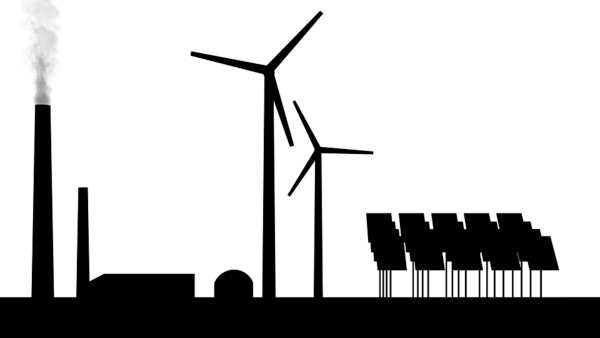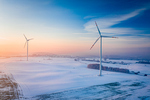News Release from windfair.net
Wind Industry Profile of
Nuclear Power: Not Sustainable for Future Energy Supply
Bill Gates' statements on the subject of nuclear power made waves last week (we reported): on the one hand, the billionaire wants to invest about two billion dollars in climate protection with his foundation, on the other he puts forward the thesis that mankind will still need nuclear power in the future and at the same time invests in his nuclear power company Terra Power.
However, apart from the major and still unsolved problem of the final storage, nuclear power is fundamentally not sustainable, as a new study on the tenth anniversary of the Fukushima nuclear disaster (11 March) by DIW Berlin now shows.
"Nuclear power isn't fully controllable, nor is it constantly available," says study author Ben Wealer. "Because of long, planned and unplanned outages, backup capacities are necessary. This means nuclear power is not viable as an energy supplier from an economic point of view either."
The two super-MCAs of Chernobyl and Fukushima have made the world aware of the dangers posed by nuclear power. And to this day, incidents regularly occur in nuclear plants around the world though usually less serious.
Even during normal operation, nuclear power plants have to be taken off the grid again and again, which leads to considerable downtimes. Due to necessary fuel changes, maintenance of the plants or increased safety requirements, there are often interruptions or even shutdowns. As a result, about one third of the capacity of all nuclear power plants cannot be used to generate electricity, says DIW.
Nevertheless, nuclear power plants repeatedly play a role in energy system models for the future, mainly because of lower CO2 emissions, which are always cited. According to the DIW study, however, the models neglect their high safety risks and fluctuating operation.
No future for nuclear power (Image: Pixabay)
"These aspects should be consistently taken into account in the energy economic analysis," demands energy economist and study author Claudia Kemfert. "Many energy and climate models disregard the fact that the risks of nuclear power have always been borne by society, as they are still not insurable in any country in the world apart from rather token liability insurance for power plant operators."
Benjmin K. Sovacool, professor of energy policy in the Science Policy Research Unit (SPRU) at the University of Sussex Business School, also refutes the ideas of lower CO2 emissions in another study: If countries want to reduce their emissions substantially, quickly and cost-effectively, they must prioritise the promotion of renewable energies over nuclear energy. This is the finding of an analysis of 123 countries over a 25-year period, which shows that nuclear programmes around the world generally fail to achieve sufficient reductions in CO2 emissions and therefore cannot be considered an effective low-carbon energy source.
“The evidence clearly points to nuclear being the least effective of the two broad carbon emissions abatement strategies, and coupled with its tendency not to co-exist well with its renewable alternative, this raises serious doubts about the wisdom of prioritising investment in nuclear over renewable energy. Countries planning large-scale investments in new nuclear power are risking suppression of greater climate benefits from alternative renewable energy investments.”
Currently, nuclear power accounts for ten percent of global electricity generation, and the trend is downward. This is because after Fukushima, more and more countries have announced their withdrawal from nuclear power. Among them is Germany, one of the world's largest economies. And even in traditional nuclear power nations like France and Japan, the population's approval of this form of energy generation continues to decline.
Not only politicians are becoming increasingly aware of the importance of the will of the voters, but investors are also gradually withdrawing from nuclear energy. For the few current investments in nuclear power plants in Europe and OECD countries are foreseeably producing losses across the board of up to double-digit billions, as DIW already showed in a study two years ago.
But anyone with as much money as Bill Gates can perhaps cope with the loss of a few billion dollars.
- Author:
- Katrin Radtke
- Email:
- press@windfair.net
- Keywords:
- nuclear power, renewable energy, DIW Berlin, sustainability, Germany, report, analysis, costs, insurance, Fukushima, Chernobyl , MCA

























